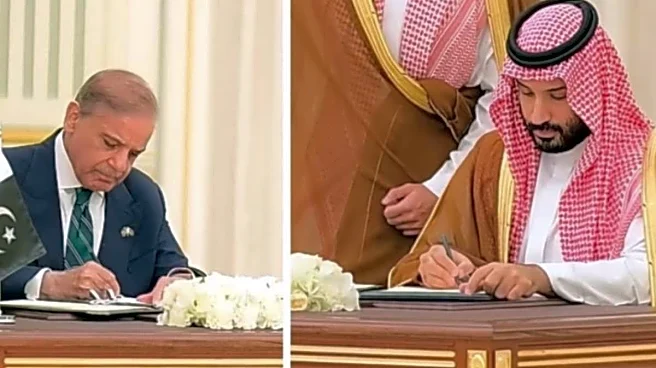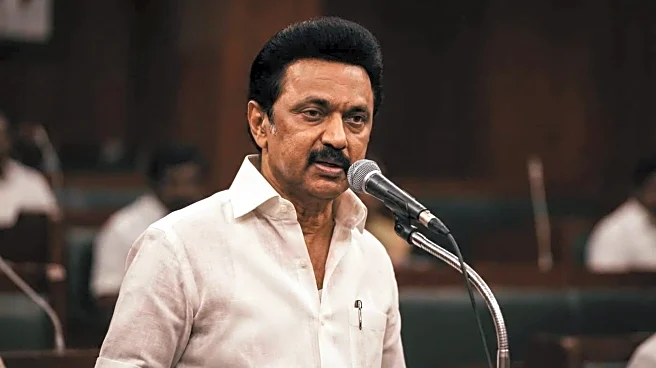There is a strong buzz about the “Strategic Mutual Defence Agreement” announced by Pakistan and Saudi Arabia on September 17. This pact follows Israel’s attack on Hamas in Qatar on September 9. The Saudi-Pakistan
agreement has declared that “any aggression against either country shall be considered an act of aggression against both,” and promised to “strengthen joint deterrence.” Many analysts, especially in Pakistan, are tempted to regard this as a recognition of Saudi’s reliance on Pakistan’s military muscle. They also consider this to be a precursor of Islamabad extending its nuclear umbrella to the Gulf kingdom one day. But for all the headlines, this agreement doesn’t bring anything new to the Saudi-Pak relationship. Saudi Arabia and Pakistan have signed similar agreements for decades (1951, 1967, 1982, 1995, 2015), and they have always tilted one way: toward Saudi security. Pakistan’s armed forces have long served as Riyadh’s insurance policy. The reverse has never happened. In every moment of Pakistan’s vulnerability, be it its wars with India or its economic crises, Saudi Arabia may have written checks, but it has never deployed soldiers on Pakistan’s behalf, let alone risk its global standing for Islamabad given the fact that the latter is notorious for sponsoring terrorism. This arrangement between Riyadh and Islamabad dates back to the 1970s, when petro-dollars empowered Saudi Arabia to bankroll allies and Pakistan’s military was eager to export its services. The deal was as simple as this. The Arab world would foot the bill and Pakistan would provide manpower. For instance, when Jordan’s monarchy faced a rebellion in 1970, it was Pakistani military officers which played a decisiverole in suppressing Palestinian fighters during “Black September.” Brigadier Muhammad Zia-ul-Haq, who later became Pakistan’s dictator, personally directed Jordanian military operations that left over 20,000 people, mostly Palestinians, dead. The episode established a precedent of Pakistan military’s willingness to fight proxy wars in the Arab world for political patronage and financial largesse. It was effectively an ‘army for rent’. In Saudi Arabia itself, Pakistanis have been a regular fixture of its security system, particularly after 1979 revolution in Iran that replaced Reza Shah’s pro-Western monarchy. Rattled by Ayatollah Ruhullah Khomeini’s fiery rhetoric about exporting revolution to Arab world to overthrow pro-American governments, Riyadh conveniently turned to Islamabad with whom it had signed a “Military Training & Deployment” agreement in 1967 under which Pakistan began training the Saudi army. Ever since, Pakistani troops played a role in guarding the kingdom and training Saudi forces. During the takeover of Mecca Grand Mosque by Salafi extremists in 1979, Pakistan Army’s Special Service Group worked alongside Saudi National Guard and French commandos to break the siege. The Iran–Iraq War of the 1980s further bound the two countries. Islamabad assured Riyadh of extending its security umbrella as the two countries signed a “Military Deputation Agreement” in 1982 which formalised the “stationing” of Pakistani troops and trainers in Saudi Arabia. The Pakistani guarantees have ever since, however, been entirely unidirectional, which is the defence of Saudi Arabia and not the other way round. However, Saudi Arabia has repeatedly extended Pakistan financial bailouts, cheap oil, and diplomatic cover even though this generosity has come with its own limits. For instance, in Pakistan’s wars with India (1965, 1971, and the 1999 Kargil conflict), Riyadh’s support has always been confined to cash and political lobbying and not militarily risk-taking. Equally telling is Saudi Arabia’s stance on terrorism wherein it has never endorsed Pakistan’s role in its sponsorship in the region. On the contrary, it has conveniently delinked Pakistan from any of its regional dealing as evidenced by its deepened ties with New Delhi, especially in energy and trade. Not only have Saudi Arabia and India become each other’s significant trade partners, the Gulf kingdom hosts one of the largest Indian expat populations which has become a vital part of its economy. Riyadh has demonstrated that it has no interest in jeopardizing these ties to defend Pakistan’s terrorism and military adventures. This was evident during India’s recent Operation Sindoor against Pakistan based terrorists following the Pahalgam attack. This latest defence agreement does nothing to change this calculus. Interestingly, there is a speculation that the new pact implies Pakistani nuclear weapons could be deployed to protect the kingdom amidst regional geopolitical flux. After all, Saudi Arabia is widely believed to have financed Pakistan’s nuclear programme in the 1970s and 1980s. Brigadier General Feroz Hassan Khan, in his Eating Grass: The Making of the Pakistani Bomb, notes that Riyadh provided “substantial financial backing” during Islamabad’s years of nuclear isolation. Though this speculation about a “nuclear umbrella” has always been there, what is far less speculative is the transactional nature of the relationship. Pakistan’s military has repeatedly rented out its services in exchange for Gulf and Saudi petrodollars. The latest pact can, therefore, be best seen as another lifeline for the Pakistani military establishment rather than a mutual security commitment. Nevertheless, the timing of this new agreement reflects Saudi Arabia’s anxieties about regional instability. With Israel targeting Hamas leadership in Qatar on September 9 leading to more pronounced regional tensions, Riyadh is seeking assurances from its traditional security partners. And as Pakistan’s military has been facing rising casualties from insurgencies at home and seeking fresh infusions of Gulf money amidst the country’s economic woes, this was an opportune moment to cement this pact. For Pakistan’s civilian government, this pact has provided a chance to give its citizens yet another false hope about its “strategic relevance.” At a time when its economy is in shambles, Pakistani leaders often highlight ties with Saudi Arabia as proof of international backing. But beyond theatrics, the underlying reality remains unchanged, which is that while Saudi Arabia gains a rental army, Pakistan’s military establishment gains cash. At the same time, the most overlooked aspect of the Saudi-Pakistani defence relationship is India. For decades, Riyadh has carefully avoided entanglement in Pakistan’s rivalry with New Delhi. And Crown Prince Mohammed bin Salman during Prime Minister Modi’s April 2025 visit to the kingdom called India a “strategic ally.” That pragmatism will not change. While Saudi Arabia may tolerate Pakistan’s rhetoric on Kashmir, it will not jeopardise relations with New Delhi. For Islamabad, this is the core contradiction of its defence pacts with Riyadh. While they may sound like alliances of equals, when Pakistan seeks reciprocity, especially against India, it will find none. It is clear that this new Mutual Strategic Defence Agreement does not add anything new and is a reiteration of an old pattern of security guarantees in lieu of financial consideration. And the stark truth is Pakistan has long been a “rental army” for Saudi Arabia and it intends to remain so. The writer is an author and columnist. His X handle is @ArunAnandLive. Views expressed are personal and do not necessarily reflect News18’s editorial stance.




/images/ppid_a911dc6a-image-177096864070611136.webp)

/images/ppid_a911dc6a-image-177096857438121179.webp)
/images/ppid_a911dc6a-image-177096852999937942.webp)

/images/ppid_59c68470-image-177096762263013357.webp)

/images/ppid_59c68470-image-177096759058220494.webp)
/images/ppid_59c68470-image-177096752848059885.webp)
/images/ppid_59c68470-image-177096756236953747.webp)

